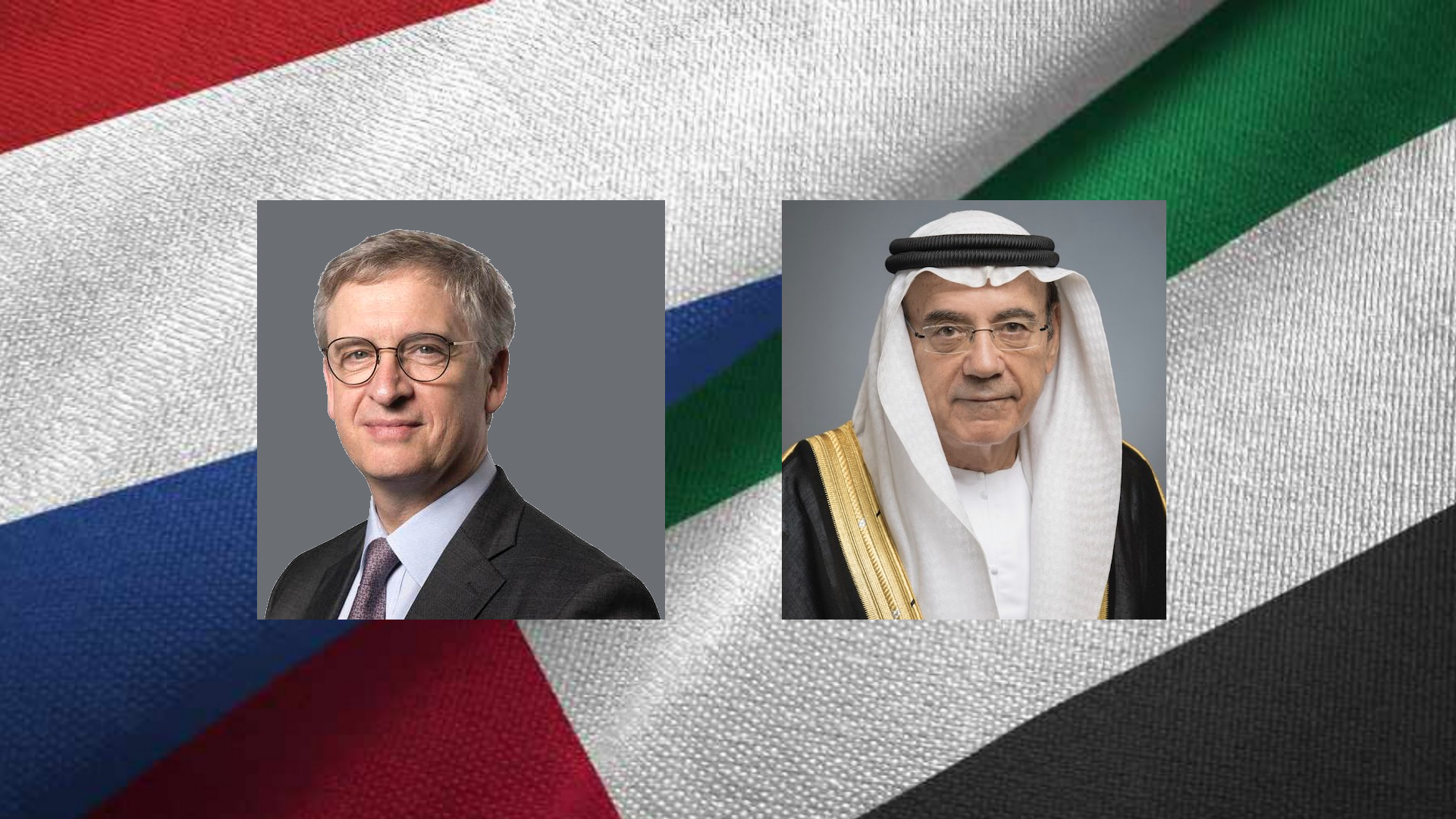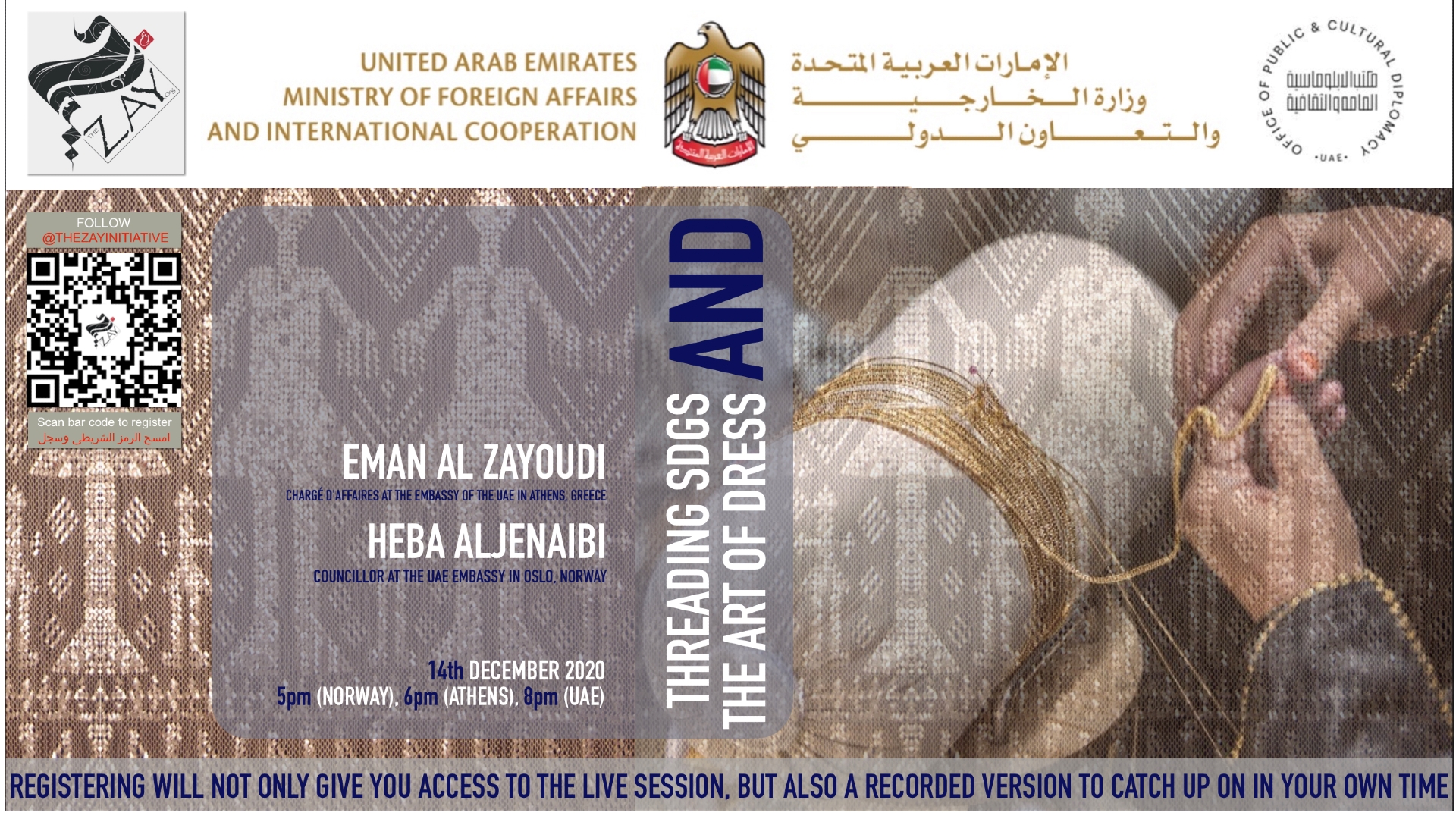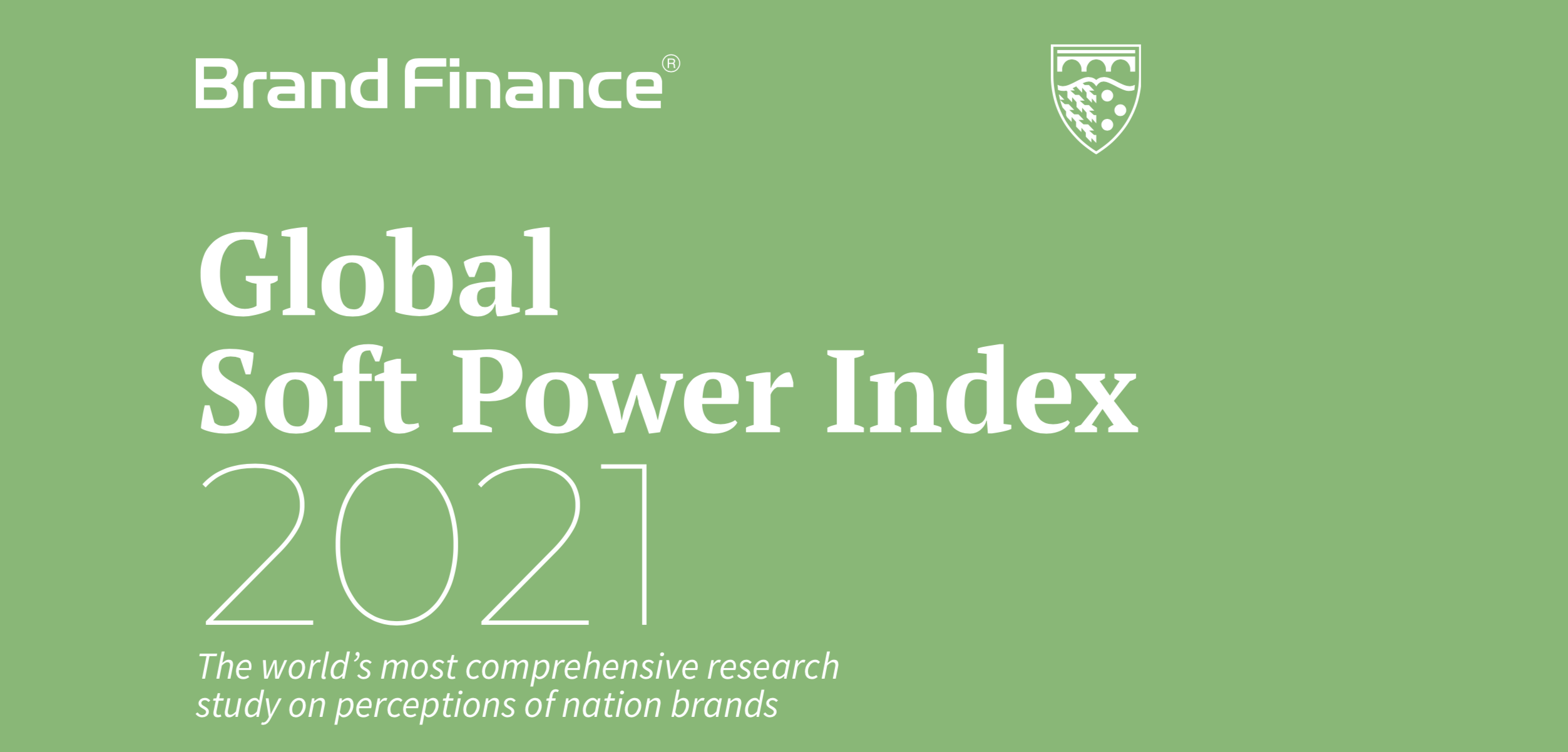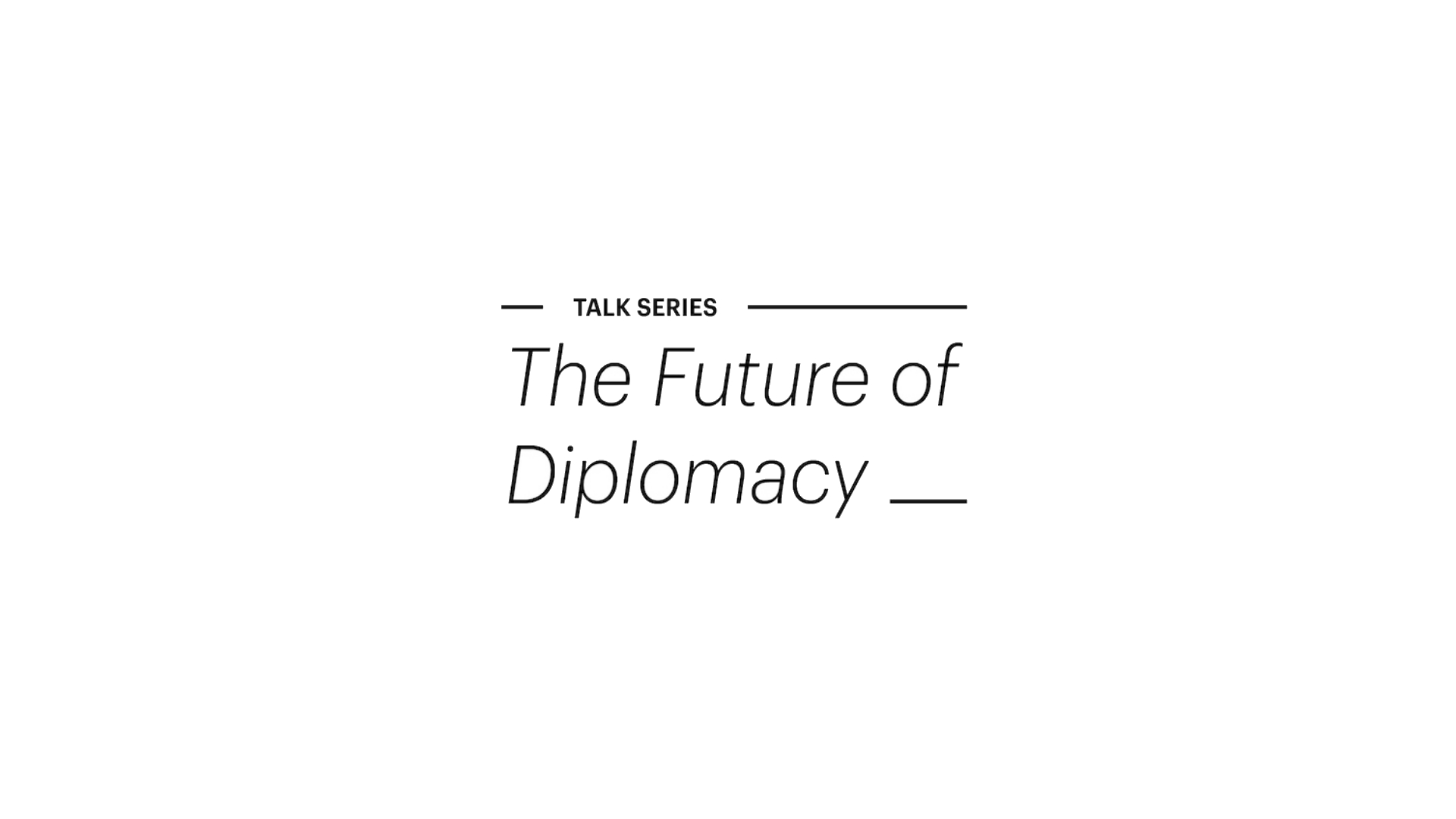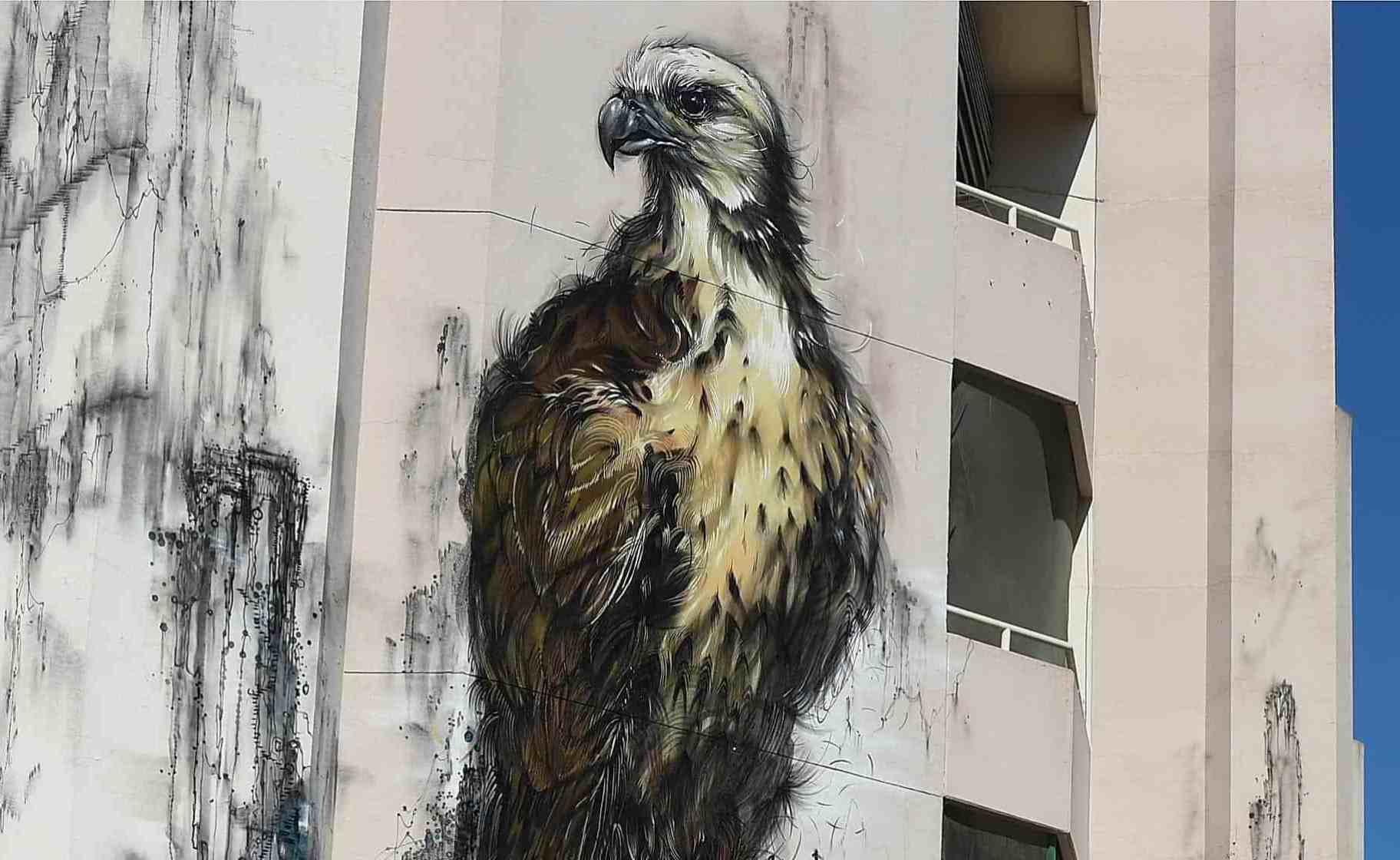For as long as there has been a United Arab Emirates, Zaki Nusseibeh has been by the side of its leader. He became the translator and interpreter for Sheikh Zayed bin Sultan Al Nahyan, the first president of the UAE, three years before the federation was established in 1971.
Jonathan Shainin – Bidoun Magazine (Summer 2009)
The scion of an ancient Jerusalem family, he quickly became a trusted advisor to the rulers of Abu Dhabi, and he has been at the center of political and cultural life in the country’s largest emirate ever since. Nusseibeh is a compact man, quick to smile. Even in a casual setting, he exudes intellectual agility and modesty alike. As the ambitions of Abu Dhabi have turned increasingly toward culture and the arts, he has become an influential figure in the shaping of a new vision for Abu Dhabi; he founded the emirate’s two classical music festivals, serves as the vice-chairman of its cultural authority, and sits on the board of the Sorbonne University Abu Dhabi. I met him at his home in Abu Dhabi, a spacious but modest Arab house that was a gift, he told me, from Sheikh Zayed himself. We sat in his study, lined from floor to ceiling with books and photographs of him with just about every head of state imaginable. Aside from Zayed and the members of the royal family, few people have had such an intimate view of the extraordinary transformation of Abu Dhabi, and as we discussed the early days of the UAE, its thrills and challenges, it became clear that the story of this country and the story of his life are so closely intertwined as to be almost indistinguishable.
Jonathan Shainin: I wanted to ask you about your childhood in Jerusalem.
Zaki Nusseibeh: What do I remember? I was very young. I remember St. George’s, where I first went to school. I remember, for instance, that my love for classical music started at school — St. George’s had a nice choir and a nice church, and you went and listened to music. I remember that we took our outlook on life then from the very tolerant environment in which we all lived. I mean, my friends at school — they were called Salam or Essam or Ali, but you did not know whether they were Muslim or Christian. Jerusalem then was a very cosmopolitan city. And as a young boy I remember growing up in a very open and liberal place.
JS: What was it like for Palestinians in Jerusalem after 1948?
ZN: Well, part of my family had been displaced in 1948. My mother was from Ramla. Her family lost their land and orchards and were dispersed in different parts of the Arab world. My father lost his leg in 1948, during the war. He had been active in politics and later became governor of Jerusalem and then a minister under King Hussein, when the West Bank was still part of Jordan. So I grew up in a political environment, but it was also, as I said, a very tolerant, very open environment. When I went to England, I was involved in Palestinian politics as a student. We were all very young then, and all very enthusiastic. I became involved in the debating society at Rugby School, and then at Cambridge we set up an Arab society, and brought people to give speeches, and held debates. It was then very alive, the issue of Palestine — of Israel and the Arab world. It was a heady time in Arab politics, and as a young person I was obviously part of what was happening, but from England.
JS: What year did you leave Jerusalem?
ZN: Around 1960. I did my A-levels, and then I went to Cambridge, where I studied economics. And I finished my studies in 1967, which was, of course, the year that the war broke out and Jerusalem was occupied. So it became difficult for me to go back to Jerusalem, or to Jordan.
JS: Did you go back?
ZN: Once, immediately after the war, in 1967. At that point it was still relatively easy to smuggle yourself into the West Bank — you could cross the Jordan River at night and enter the West Bank, and I took a taxi from there into Jerusalem to see my parents. Nobody knew then what was going to happen. I had just finished my studies, but there was obviously no future in Jerusalem. And it was at this point that my father said, “Why don’t you go to Abu Dhabi and seek your chances there?” He was a politician, as I said, and he knew Sheikh Zayed, who had assumed power in 1966, in August. Suddenly, Abu Dhabi was the El Dorado of the Arab world. So I followed his advice. That was in 1967.
JS: What was it like?
ZN: There was barely any infrastructure. The airport was a small building, a temporary building, with a single runway. There were no roads, of course, no electricity and no water. Many young people then were coming from around the Arab world, looking for things to do. Most of my friends from that time went into some kind of business — they wanted to sell iron or timber or build houses. Anybody could do anything then, it was wide open. And I loved it. Abu Dhabi then was truly an island. You were surrounded by the sea.
JS: Had a bridge to the mainland been built yet?
ZN: When I came, a bridge had been built. But I had friends who were here before the bridge. Edward Henderson told me he would sit and read Shakespeare, waiting for the tides to subside. He said he read the whole of Shakespeare that way. And there were no roads! You drove over dunes in Land Rovers. The fortress was there, the Hosn, where Sheikh Zayed lived and ruled. And there were some contracting companies with camps around an area where the El Dorado cinema is now. There was an old souk by the corniche — but there was no corniche. It was a small village then, so you met everybody very quickly.
At that time, Abu Dhabi was becoming known — a little — to the outside world as an oil producer. At the same time, you had the Arab-Israeli war, a revolution in Oman, war in Yemen. The area was a hotbed of instability, even then. So international journalists and editors were becoming interested in the region, and they would come and visit Abu Dhabi. Then there was only one hotel, the Beach Hotel, where the Sheraton is now. And so we would all go in the evening and sit there — this was in the first few months I was here. I met a number of these editors who had come to visit, and they started asking me, “Why don’t you write us stories?” So I became a reporter — a stringer, as they called it.
JS: You had never done anything like that before?
ZN: No, I hadn’t. At Cambridge I had written a few articles — I wrote one or two things about the Arab-Israeli issue — but I had never done journalism as such before. But they asked me, so I started doing it. I reported for Reuters and the Financial Times, the Economist, and the BBC Arabic Service, things like this.
JS: What sort of articles were you writing? What would the headlines have been back then?
ZN: These were mostly economic stories — the awarding of contracts, the construction of the airport and the roads. Gradually there were political stories as well — in 1968, of course, Britain announced that it was withdrawing from east of Suez. Suddenly the seven emirates — who had no police force, no army, no infrastructure, no civil services — were left to work out their future.
JS: Is that when you first met Sheikh Zayed?
ZN: I met Sheikh Zayed almost immediately after I arrived. There was a British television crew who wanted to interview him, and they asked me to conduct the interview, to ask him the questions in Arabic and translate the answers. I did that, and it was our first contact. This was the beginning of 1968. He was sitting outside in the Hosn, and I went there, to the Majlis, and I asked him the questions. He was a very impressive personality, a magnetic presence. After the interview, he began to ask me questions — “What are you doing in Abu Dhabi?” and so on. He knew the name of my family, and my father, so he knew that I was here working in the press. And from that day on, I became basically his personal interpreter. I also became part of the Abu Dhabi government, if you will — I worked a bit in translating the first laws that were being promulgated, and I was in charge of PR and communications. I started looking after the journalists who came to cover the emirate. At the same time, I continued working as a stringer for a while, until it became untenable for me to do so.
JS: What was it like for you to have come from a place where your family had roots going back a thousand years, to this new place, being built as you arrived?
ZN: But you must remember, it is an Arab society. And I must say that Sheikh Zayed and those around him — immediately — made me feel part of this place. He offered me nationality almost immediately, and so I became a citizen. So I did not feel like a stranger here. I did not feel like an expatriate. I loved the place. There is also the fact that I was working, from that moment, with this man who was truly a historic figure. Very soon after we first met, I traveled with him to Europe and translated for him with heads of state. We went to England, and I translated for him with the queen of England. It was truly, for me, a very exciting career, and I also discovered, in the desert and in the oasis, a deep civilization. You know, people who come here from outside sometimes think of the Emirates as simply a community generated by oil, one that did not exist before. But I started to learn about its history and its poetry and its archeology — Sheikh Zayed started the museum in Al Ain in 1969, before the federation was set up, to look for architectural finds that existed here and put them into a museum.
JS: I’m trying to imagine the feeling in the air between the British withdrawal and the founding of the federation in 1971.
ZN: There was a lot of skepticism about whether this place would survive. All the journalists I took around then, the editors, the visiting dignitaries — they all looked at the Emirates and said it would not survive.
JS: What did they think would happen?
ZN: They thought that the individual emirates would be absorbed by their bigger neighbors. You must remember, we had revolutions all around us — there was Communism and Marxism, and simply bigger neighbors like Iran and Saudi Arabia.
JS: Did people think the Emirates would become a province of Saudi Arabia?
ZN: Of somewhere else, at least. People thought that different emirates would be absorbed by these neighboring entities. And yet, working close with Sheikh Zayed and listening to his vision — because I had, in a way, become his voice, in translating what he believed to the rest of the world — I became excited by the notion that it was going to work, that in spite of everything that was being said, that this place was going to work. He had that ability to enthuse people, to make you part of his vision, to let you come on board. In 1968, when the British first announced they were withdrawing, the rulers here basically went to the British and said, “Why are you leaving? How much does it cost you to maintain troops in the area? We will pay your costs.” But in 1969, I brought a British politician to see Sheikh Zayed. This man had come as messenger from Conservative Party leader Edward Heath to ask Sheikh Zayed if he would like the British to reevaluate the withdrawal policy if the Conservatives came to power. And Sheikh Zayed said, “No, thank you very much, we have our own plans. We will establish a federation and play a responsible role in the region. We will always appreciate your friendship, but we can stand on our own two feet.”
JS: What had changed in the intervening year?
ZN: First of all, Sheikh Zayed had established an immediate contact with Sheikh Rashid, the ruler of Dubai. They set up an initial federation with Abu Dhabi and Dubai and invited the others to join. And I think Sheikh Zayed became convinced that he could forge a federation, although it then took four years of very difficult negotiations that sometimes went around and around in circles. But he never lost his conviction that it would work. He was convinced that he could bring the federation into being, and that he would therefore be able to establish the army, the police force, the civil service, the physical infrastructure that was required. And he did an amazing job. Sometimes people say, it was just the oil money that did it. But to begin with, that oil money was not big money then. We talk now of oil wealth, but at that time oil was selling for less than half a dollar a barrel. And many other countries around us had great oil resources, and they did not succeed in the same way. It was the vision, the good governance, that made it work.
JS: I get the sense that, around this time, there was a realization that for the Emirates to cohere as a nation, it would require the formation of a national identity that had not existed before. Until 1968, or 1971, the people of each emirate identified with that place alone.
ZN: Or said “I’m from this tribe” and not that one, absolutely. But Sheikh Zayed felt that here we are one people. He was, incidentally, a unionist from the outset, and he was a pan-Arabist as well — he wanted the entire Arab world to come together and work together in closer cooperation. But in the Emirates, yes, he felt that all the people belonged to the same community, shared the same history, the same traditions, the same heritage — the ruling families, you know, were often related to each other. He felt that this was a country that already had a past, and that it could coalesce around an idea. The idea was that we could have our own future, we will build our own community.
JS: Was there internal resistance to the idea? Were there people then, inside the Emirates, who insisted on their separateness?
ZN: Yes, I mean, there was a lot of politics involved. Most of it, incidentally, among the ruling families. You had seven ruling families, and one of the first things that Sheikh Zayed succeeded at was convincing his fellow rulers that he was not out to supplant them. He wanted to establish a federation because he thought it was necessary for the security and stability of the country — but he assured every ruling family that it would retain independence in its own emirate.
JS: Do you find yourself missing the old days, when you and Abu Dhabi were both so young, the way things were then?
ZN: No, no. I mean, I am happy with the way that things have worked out. Now we are coming into the second era, if you like, of development in the Emirates. The first forty years were the foundation years. Now we are going to have these exciting international cultural institutions around us, and in the next forty years, I can see the UAE becoming a global hub for culture, education, health.
JS: What were the most difficult moments of that first era, these years of foundation?
ZN: The wars, I think. Abu Dhabi — the whole country, really — developed in an area that was always troubled, and in a time that was very troubled. You had the 1973 Arab-Israeli War, the 1970 civil war in Jordan… Everything that happened in the Arab world was felt in the Emirates — the Iranian Revolution, and then the Lebanese Civil War, and then the Iran-Iraq War. The invasion of Kuwait, I think, was the most trying time. It was the first time an Arab country occupied another Arab country, became a menace to its neighbors in a direct military way. This split the Arab world, because, unfortunately, the Arab street always runs after an illusion, the illusion of a great political and military hero who is going to come and restore past glories. So there were many difficult periods, but the fact that this is a part of the world that has succeeded, that works, is in itself incredibly satisfying now.
JS: You came here from Jerusalem, as a Palestinian. It seems that this has always been a place with a very vibrant Arab diaspora, where the work of Palestinians and other Arabs has played a major role in building the country.
ZN: This is a place that has always welcomed people from every part of the Arab world. And the Palestinians have done well here, yes. They were welcome, they settled, and they did well — many became well-established businessmen.
JS: There is this aspect here — with people like yourself, even — of harnessing the skills of those from what were, at least back then, more cosmopolitan societies.
ZN: Sheikh Zayed had to start somewhere. When he started building the state, he had nobody around him. He brought in anyone he thought could help. This is why he welcomed people from all countries, Arab or non-Arab. But at the same time, he said from the outset that our real resource is our people, and therefore we must focus on education. From the beginning he said that the first priority for the government should be to build schools and to bring the boys and girls into schools. He made education compulsory for every boy and every girl. We must take the schools, he said, to out where the Bedu live, so that they can accustom themselves to living in an urban environment, even in these traditional areas, so that their children will go to school. He started a system where he paid salaries to every student to encourage the parents to send their children to the schools.
JS: It seems that there has been an increased focus on culture and education in the years since Sheikh Zayed died.
ZM: Yes, yes. Culture and education. They are linked, museums and education. The leadership has decided that education is the next big thing that has to achieve a global standard. Not just good schools, but the best schools — not just the best schools in the Middle East, but the best schools in the world. And the best universities, as well. Not only our local universities, but now other universities like the Sorbonne and New York University. You create a community of knowledge, if you like. But education does not go on its own, culture and cultural development is a central part of your education policy. Because it’s not enough to take a child into a school that is first rate, if he doesn’t also have a museum that he can go to or music that he can listen to or a book fair that he can attend or a translated work that he can read. So this has become now the focus, that in order to create a society that is adapted to the challenges of the twenty-first century, you need to have really the best education that you can provide for your own people.
JS: This seems like a bit of an uphill struggle at the moment.
ZM: Well, yes, but it is happening. With the schools that are being improved across the country, with new model schools being developed, with new partnerships. And these new cultural institutions. Of course, in the back of your mind — of the leadership’s mind — is the thought that this is necessary for our own survival, but also it is necessary for the stability of the region and for our relationships with the rest of the world. The communities have become so interrelated now — Europe and the Arab world and the Gulf. This is a strategic part of the world, an axis between Asia and Africa and the Middle East and Europe. And so we have a role to play. What is this role? It is to provide this kind of liberal, open education, but at the same time, to strengthen our roots even as we open to the rest of the world. This is the central vision. It is a huge project, as exciting to me as the project that drew me here in the first place, which was to create a state out of the chaos that existed around it.

